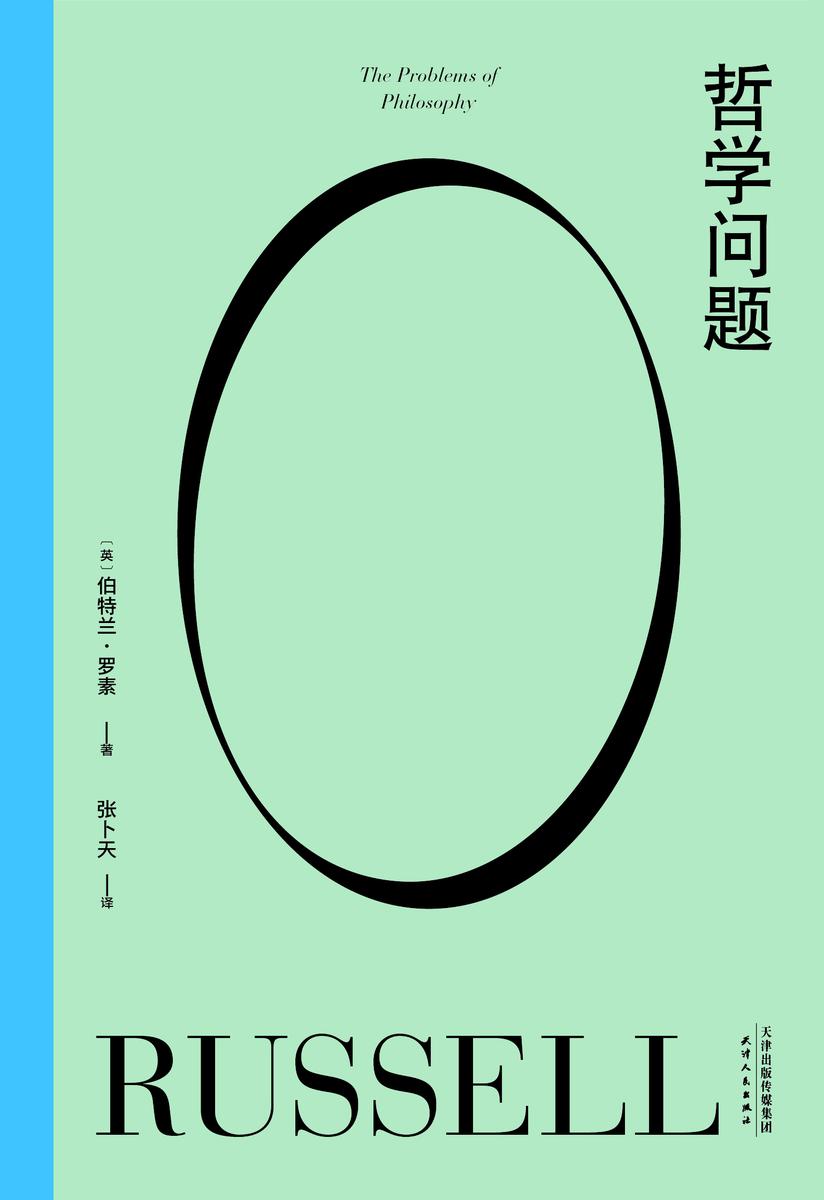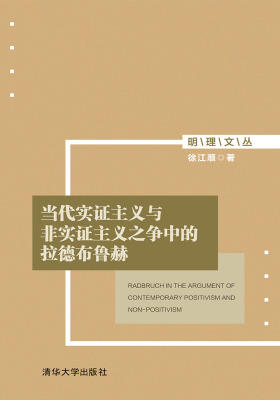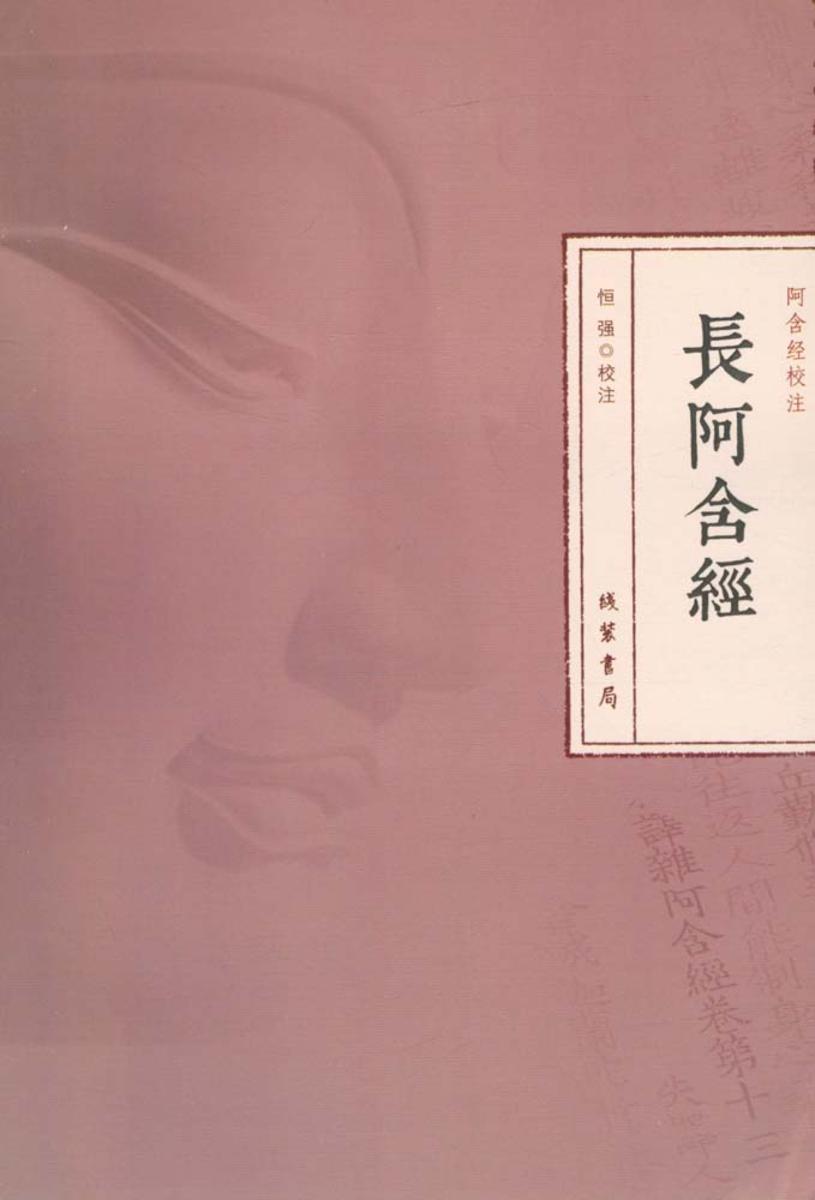

朝话
促销价:¥29.99|¥25.00
《朝话》是梁漱溟先生在山东行乡村建设运动时期,每日朝会上与研究部同学们的部分谈话辑录。本书非系统的学术讲演,而只是对同学之日常生活有所诏示启发,或自同学提出之问题,予以当下指。或谈论人生修养,或讲述治学方法,或议论社会、学术文化等问题,莫不本于梁老个人感悟,出自切身体认;语重心长,亲切隽永,足以发人深省。对于被浮躁的社会裹挟着前的我们来说,这本讲求身心修养的《朝话》意义尤为重大。


一切都是最好的安排3
¥45.00
本书系列是加措活佛的代表作品,共三部,被他称为“人生智慧三部曲”,书中公开分享了加措活佛对于生命的感悟。本书是这一系列的完结篇,加措活佛在书中对于学会放下后,人生如何精进等问题给出了暖心开示。 全书共分七个章节,以自我、内在、逆境、情绪、相处、快乐、生活为主题,详细讲述了我们在遇到人生种种困顿、挫折、痛苦时,如何有效地实现自我、突破自我,活出生命美好的样子。 不管你想成为怎样的人,面对世间何种烦恼,愿你翻开本书,都能够获得源源不断的内在能量的加持,开启全新人生。


哲学问题
¥45.00
这本10万字的小书,是罗素的哲学导论性读本。罗素称它为"廉价本的惊险小说",这是因为其内容非常明确且引了崭新的观。书中对哲学的基础、范畴、和意义等问题,主要是哲学的领域,也就是认识论提出了自己的基本观,他认为这个世界存在超越物理和心灵世界的共相,它也是一种实体,是普遍意义上人们认识世界的基础。同时对笛卡尔、休谟、康德等哲学家的思想行了相关分析。


逻辑哲学论
¥45.00
《逻辑哲学论》是维特根斯坦的主要著作,也是逻辑实证主义的早期重要著作。在早期分析哲学运动中被奉为经典。作者从"世界时一切发生的事情"到"对于不可说的,人们必须报以沉默"的论述,都成功地为世界划定了一个界限。书中所提到的"原子事实"、"事态"、"对象"等概念以及这些概念的确切含义以及它们之间的关系,大半个世纪以来一直就该书研究者悉心探讨的问题。维特根斯坦在这本书中否定因果律,断言逻辑和数学的命题都是重言性质的,所有哲学史上争论的问题都是无意义的,哲学的任务只是对语言行逻辑分析,即日常语言的明确化。


快乐主义(果麦经典)
¥45.00
《快乐主义》是古希腊哲学家伊壁鸠鲁的哲学箴言录。伊壁鸠鲁派哲学,是以快乐为终极目标的哲学。伊壁鸠鲁提倡以简单快乐为基础的适度生活,为的是让人在何时何地都能保持内心宁静。很多人将伊壁鸠鲁的“快乐主义”等同于“享乐主义”,其实是一种很深的误解。实际上,伊壁鸠鲁所说的快乐并不是刺激和放纵,而是身心无痛苦的平和状态;而且这种快乐建立在理性思考、消除错误观念的基础上。他主张过一种平静无忧、清醒自由的生活,以理性驾驭欲望,以知识消除恐惧,从简朴中培养满足感,从友谊中收获安全感。


远离苏格拉底
¥45.00
本书主要研究柏拉图对话中的苏格拉底形象,是从政治哲学的角度理解苏格拉底的尝试。苏格拉底的诘问法展现着独特的解构逻辑:从生活化语境切,通过对常识命题的辩证推演,最终抵达对传统习俗的颠覆性重构。这种思想实践深刻揭示出复杂的张力结构——哲学求真意志与城邦政治秩序的抵牾、爱欲的超越性追求与习俗规范的冲突、智识精英的超然品格与其公民身份的社会性束缚。雅典民主制对哲人的审判,本质上暴露了哲学超越性本质与哲学家肉身存续之间的永恒悖论:当爱欲驱动的批判理性彻底悬置现实秩序的价值根基时,哲学便蜕变为否定现存世界的“神圣疯狂”,这种智性僭越最终招致政治共同体的暴力反噬。 所谓“远离苏格拉底”,不是远离哲学,而是重构哲学与政治的共生关系:哲学必须培育政治审慎,通过自我设限避免真理的危险;政治需要涵容哲学反思,借此消解权力运作的盲目性。唯有在批判与建制、超越与妥协的动态平衡中,方能实现智性追求与公共福祉的双重成全。这种辩证关系的当代重构,或许正是古典政治哲学留给现代性困境的重要启示。


贺麟全集:黑格尔 黑格尔学述
¥45.00
《黑格尔黑格尔学述》收贺麟于1930年代编译的近代西方新黑格尔主义者的经典黑格尔研究——尔德的《黑格尔》与鲁一士的《黑格尔学述》,二书均能将黑格尔学说体会融化并以清晰流利的文字叙述出来,可谓姊妹关系,互相发明,互相弥补,而又各有所长。尔德注重叙述黑格尔的生活、性格、时代风气、文化背景,特别是政治和宗教背景,以及黑格尔的逻辑学说;鲁一士则着重阐述黑格尔之精神现象学。本书是将黑格尔及其学说译介至中国的人——贺麟对“黑格尔学”发生兴趣之始,贺麟以朱熹太极观会通黑格尔的“*理念”,对于中西比较哲学研究居功甚伟。作为贺麟重要译著收“全集”的《黑格尔》及《黑格尔学述》均为建国后首度整理出版,对于了解哲学家和翻译家贺麟意义非凡。


小逻辑
¥45.00
本书是《哲学全书纲要》的部分,通称《小逻辑》,以区别于《大逻辑》(即逻辑学)。全书除导言外,共分:存在论、本质论、概念论三篇,反映了黑格尔哲学体系的基本框架。黑格尔的《小逻辑》是构成他的《哲学全书》的一个主要环节,它的好处在于把握住全系统的轮廓和重点,材料分配均匀,文字简奥紧凑,而义蕴深厚。初看似颇难解,及细加咀嚼,愈觉意味无穷,启发人深思。他的学生在他逝世后编订全集时,再附加以学生笔记作为附释,于是使得这书又有了明白晓畅,亲切感人的特点。


传习录
¥45.00
《传习录》是明代王守仁(王阳明)的哲学语录。由门人徐爱、钱德洪等辑录。编《阳明全书》作为首篇,共上中下三卷。“传习”一词,语自《论语·学而。全书采用学生问,王阳明答的形式展,又收有一些书信,内容丰富。王阳明的主要哲学观,“心即理”“知行合一”“致良知”和“万物一体”等, 在书中均有体现。王阳明心学是中国心性儒学的高峰,钱穆认为,《传习录》是中国人要读的经典之书。梁启超称,学阳明先生思想,应读《传习录》。


渔樵问对:白话解读版
¥45.00
《渔樵问对》以渔夫与樵夫的对话为载体,探讨了字宙生成、阴阳变化、人性善恶、治世之道等诸多哲学命题。 全书通过简洁凝练的问答,将深奥的哲学道理融入生动的生活场景,以自然之理喻人事之理,以天地之道明处世之道。从对自然现象的解读,到对社会规律的剖析,邵雍以其*的智慧,揭示了事物发展的内在逻辑。 这部著作不仅是了解北宋理学思想的重要窗口,更能启发读者以辩证思维看待世界,在现实生活中领悟人与自然、人与社会的相处智慧,感受中国古代哲学的独特魅力。


老庄心解 中华书局出品
¥45.14
《老庄心解(新编本)》是范曾先生负笈欧洲、闲居巴黎时与老庄行的心灵对话;范曾先生或文、或史、或哲、或艺行多学科的磨砺互证,对老庄本原的思想命题展了深度的阐释和解读。要言不烦,清新隽永;刹那神思,直抵灵府。


金钱不能买什么(第二版)
¥45.50
用金钱奖励取得好成绩的孩子是否可行?付费猎杀稀有动物是否道德?人的生命是否可以被定价?一个国家的碳排放权是否可以拿来卖? 我们生活在一个几乎所有的东西都可以拿来卖的时代。在过去的30年里,市场和市场价值观渐渐地主宰了我们的生活,涉及医疗、教育、政府、法律、艺术、体育,甚至家庭生活和人际关系等。我们从拥有一种市场经济滑了一个市场社会。 在《金钱不能什么》中,迈克尔?桑德尔论述了当下突出的市场与道德的困境,市场的角色和范围是现代政治所缺失的一场重大辩论。我们想要一个市场社会吗?市场应当在公共生活和私人关系中扮演怎样的角色?我们如何能够决定哪些物品应当可以卖,以及哪些物品应当受非市场观念的支配?? 为了决定市场所属之地以及市场应当与什么领域保持一定距离,我们就要首先决定如何评价相关的物品——健康、教育、家庭生活、自然、艺术、公民义务等。这些是道德问题和政治问题,而不只是经济问题。为了决定金钱应当以及不应当什么,我们就要首先决定,什么样的价值观应当主导社会生活和公民生活的各个领域,如何认真地思考这个问题,便是本书的主旨所在。 桑德尔希望,这本书可以推动人们重新思考市场在我们的社会实践、人际关系和日常生活中的角色和范围,展公共讨论,并为人们认真思考这些问题提供一个哲学框架。


高维度思考法:打破认知的壁垒(从解决问题到发现问题,提升思考维度,实现创意跃迁的核心指南。套装共2册。)
¥45.60
《高维度思考法》 一直在解决问题的人,永远不可能发现问题。理解“发现问题的思路”,意识到“无知、未知”,就能获得打破“常识之墙”的创意。现阶段,我们往往被“解决问题型”的价值观所支配,在已知的范围内努力解决已经存在的问题。然而,“靠知识量取胜”和“解决既有问题”已不再是我们该努力的课题,发现并定义存在于未知领域内的问题才是我们更应该做的。 书中以伊索寓言中的“蚂蚁和蝈蝈”来做比喻,分析“解决问题型”和“发现问题型”这两种思考方式的不同和特征。指出擅长解决既有问题的人并不擅长发现问题,反之亦然。但是这二者在企业中同时存在,掌握发现问题的思考方式,自觉认识到自己原本在哪些部分上占优势,思考如何活用自己的长处,克服自己的短处,才是关键的。 同时,为了更好地在未知领域中发现问题,书中还介绍了三种提升视角或思考“维度”的方法,让大家更好地发现问题,正确定义问题,从而做到真正的问题解决。 《高维度思考法:职场问题解决篇》 为什么一直拼命努力却无法获得理想的业绩?为什么总有一些人能轻轻松松地实现目标?严格按照上司或客户的要求工作,就一定能让对方满意吗?如何才能读懂趋势,及时赶上下一个风口? 回答上面这些问题的关键,在于能否从更高维度发现问题和解决问题。本书通过大量职场问题的解决案例,详细解析了运用“元思维”实现高维度思考的两种方法:Why 型思维和类推思维。Why 型思维通过追问上层目的,帮助我们冲破思维定式和狭隘视野,洞察问题的本质;类推思维通过放眼大千世界,教我们如何从其他领域借鉴灵感,从而实现跳跃式创意。 如果你正被繁重的工作压得喘不过气来,或者正因为创意陷入僵局而一筹莫展,那么不妨按着本书的提示,开启一段简单高效的职场问题解决训练吧。如果能像无人机一样,像谷歌地球一样,从杂务中抽离出来,拉长镜头看一看,你会发现崭新的世界、不同的视角,所有难题都能迎刃而解。


英雄之旅:约瑟夫·坎贝尔亲述他的生活与工作
¥45.90
约瑟夫·坎贝尔是20世纪伟大的神话学大师,因其对神话的独特解读在西方享有盛名,他提出的“英雄之旅”的模型*为人熟知,这一理论推动了西方流行文化的发展,使坎贝尔成为众多艺术家、学者、政治家的灵魂导师。 《英雄之旅》由坎贝尔与世界各领域的精英人士的对话交织而成,颇具巧思。这些人士包括诗人罗伯特·布莱、人类学家安杰利斯·阿里恩、电影制作人戴维·肯纳德、大门乐队鼓手约翰·登斯莫尔、精神病学先驱斯坦尼斯拉夫·格罗夫、诺贝尔奖获得者罗歇·吉耶曼等。 坎贝尔一生专注于思考神话的起源与功能、艺术家的责任,以及爱与浪漫的仪式化问题。他用诗一般的语言阐述了自己的追求,为一生都在探索神话传统兴奋不已。在坎贝尔的眼中,神话传说就是“人类*伟大的故事”。 脱离你熟悉得不能再熟悉的温柔乡,勇于受各种超出你日常认知的的试炼和磨砺,在坎贝尔提供的武功秘籍的帮助下,你也许就会超越繁琐日常的羁绊,将自己锻造为人生之路上的英雄。


当代实证主义与非实证主义之争中的拉德布鲁赫
¥45.95
本书以拉德布鲁赫的三元方法论作为统摄全书的分析框架,阐述了拉德布鲁赫的新康德主义背景,将传统自然法和传统实证主义的理论主张跟拉德布鲁赫的涉及价值的事实的法概念行鲜明对比,揭示出他的这一立场在“二战”后事实上成为了当代实证主义和非实证主义关于法律与道德的关系的争论的研究路,以此向读者呈现独到的“二战”后的西方法律思想史上的拉德布鲁赫的学术地位和价值。


长阿含经
¥46.00
汉译四部《阿含经》——《杂阿含经》、《中阿含经》、《长阿含经》与《增一阿含经》,是由佛陀的圣弟子于佛陀般涅槃的当年夏安居时结集出来的,忠实地汇集了佛陀自成佛以来至般涅槃前所宣讲的教法,由此说明了《阿含经》的原始性、根本性与权威性。在汉传佛教的三藏典籍中,《阿含经》就代表着原始佛教,也是印度部派佛教时期所公认的“根本佛法”。 为便于广大信徒与学者更好地了解、学修原始佛教,本书校注者以高丽藏为底本,尽量保持原本整体风貌,将四部阿含经文转为简体字,加上现代标及分段。并在前人研究成果的基础上,参考《南传大藏经》、《碛砂藏》、《大正新修大藏经》、《正仓院圣语藏本》等不同藏经,纠正原经文部分错漏之处,就经中出现的地名、人名、法相名词、艰涩文句及其它译本的不同翻译作出注释,方便读者更为精准地把握根本教义与修行原理。本书有较高的学术、实用、版本和收藏价值,是广大佛教信徒与佛学研究者难得的学习、研究参考书。


杂阿含经(下册)
¥46.00
汉译四部《阿含经》——《杂阿含经》、《中阿含经》、《长阿含经》与《增一阿含经》,是由佛陀的圣弟子于佛陀般涅槃的当年夏安居时结集出来的,忠实地汇集了佛陀自成佛以来至般涅槃前所宣讲的教法,由此说明了《阿含经》的原始性、根本性与权威性。在汉传佛教的三藏典籍中,《阿含经》就代表着原始佛教,也是印度部派佛教时期所公认的“根本佛法”。 为便于广大信徒与学者更好地了解、学修原始佛教,本书校注者以高丽藏为底本,尽量保持原本整体风貌,将四部阿含经文转为简体字,加上现代标及分段。并在前人研究成果的基础上,参考《南传大藏经》、《碛砂藏》、《大正新修大藏经》、《正仓院圣语藏本》等不同藏经,纠正原经文部分错漏之处,就经中出现的地名、人名、法相名词、艰涩文句及其它译本的不同翻译作出注释,方便读者更为精准地把握根本教义与修行原理。本书有较高的学术、实用、版本和收藏价值,是广大佛教信徒与佛学研究者难得的学习、研究参考书。


增一阿含经(下册)
¥46.00
汉译四部《阿含经》——《杂阿含经》、《中阿含经》、《长阿含经》与《增一阿含经》,是由佛陀的圣弟子于佛陀般涅槃的当年夏安居时结集出来的,忠实地汇集了佛陀自成佛以来至般涅槃前所宣讲的教法,由此说明了《阿含经》的原始性、根本性与权威性。在汉传佛教的三藏典籍中,《阿含经》就代表着原始佛教,也是印度部派佛教时期所公认的“根本佛法”。 为便于广大信徒与学者更好地了解、学修原始佛教,本书校注者以高丽藏为底本,尽量保持原本整体风貌,将四部阿含经文转为简体字,加上现代标及分段。并在前人研究成果的基础上,参考《南传大藏经》、《碛砂藏》、《大正新修大藏经》、《正仓院圣语藏本》等不同藏经,纠正原经文部分错漏之处,就经中出现的地名、人名、法相名词、艰涩文句及其它译本的不同翻译作出注释,方便读者更为精准地把握根本教义与修行原理。本书有较高的学术、实用、版本和收藏价值,是广大佛教信徒与佛学研究者难得的学习、研究参考书。


中阿含经(上册)
¥46.00
汉译四部《阿含经》——《杂阿含经》、《中阿含经》、《长阿含经》与《增一阿含经》,是由佛陀的圣弟子于佛陀般涅槃的当年夏安居时结集出来的,忠实地汇集了佛陀自成佛以来至般涅槃前所宣讲的教法,由此说明了《阿含经》的原始性、根本性与权威性。在汉传佛教的三藏典籍中,《阿含经》就代表着原始佛教,也是印度部派佛教时期所公认的“根本佛法”。 为便于广大信徒与学者更好地了解、学修原始佛教,本书校注者以高丽藏为底本,尽量保持原本整体风貌,将四部阿含经文转为简体字,加上现代标及分段。并在前人研究成果的基础上,参考《南传大藏经》、《碛砂藏》、《大正新修大藏经》、《正仓院圣语藏本》等不同藏经,纠正原经文部分错漏之处,就经中出现的地名、人名、法相名词、艰涩文句及其它译本的不同翻译作出注释,方便读者更为精准地把握根本教义与修行原理。本书有较高的学术、实用、版本和收藏价值,是广大佛教信徒与佛学研究者难得的学习、研究参考书。


中阿含经(下册)
¥46.00
汉译四部《阿含经》——《杂阿含经》、《中阿含经》、《长阿含经》与《增一阿含经》,是由佛陀的圣弟子于佛陀般涅槃的当年夏安居时结集出来的,忠实地汇集了佛陀自成佛以来至般涅槃前所宣讲的教法,由此说明了《阿含经》的原始性、根本性与权威性。在汉传佛教的三藏典籍中,《阿含经》就代表着原始佛教,也是印度部派佛教时期所公认的“根本佛法”。 为便于广大信徒与学者更好地了解、学修原始佛教,本书校注者以高丽藏为底本,尽量保持原本整体风貌,将四部阿含经文转为简体字,加上现代标及分段。并在前人研究成果的基础上,参考《南传大藏经》、《碛砂藏》、《大正新修大藏经》、《正仓院圣语藏本》等不同藏经,纠正原经文部分错漏之处,就经中出现的地名、人名、法相名词、艰涩文句及其它译本的不同翻译作出注释,方便读者更为精准地把握根本教义与修行原理。本书有较高的学术、实用、版本和收藏价值,是广大佛教信徒与佛学研究者难得的学习、研究参考书。


杂阿含经(中册)
¥46.00
汉译四部《阿含经》——《杂阿含经》、《中阿含经》、《长阿含经》与《增一阿含经》,是由佛陀的圣弟子于佛陀般涅槃的当年夏安居时结集出来的,忠实地汇集了佛陀自成佛以来至般涅槃前所宣讲的教法,由此说明了《阿含经》的原始性、根本性与权威性。在汉传佛教的三藏典籍中,《阿含经》就代表着原始佛教,也是印度部派佛教时期所公认的“根本佛法”。 为便于广大信徒与学者更好地了解、学修原始佛教,本书校注者以高丽藏为底本,尽量保持原本整体风貌,将四部阿含经文转为简体字,加上现代标及分段。并在前人研究成果的基础上,参考《南传大藏经》、《碛砂藏》、《大正新修大藏经》、《正仓院圣语藏本》等不同藏经,纠正原经文部分错漏之处,就经中出现的地名、人名、法相名词、艰涩文句及其它译本的不同翻译作出注释,方便读者更为精准地把握根本教义与修行原理。本书有较高的学术、实用、版本和收藏价值,是广大佛教信徒与佛学研究者难得的学习、研究参考书。




 购物车
购物车 个人中心
个人中心



